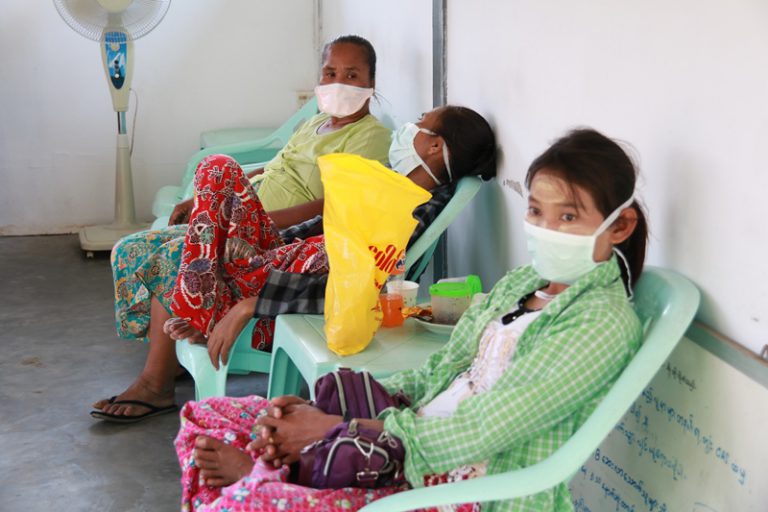A Rangoon pilot programme launched by Medicines Sans Frontieres in Burma is testing a new international access campaign using two new drugs — bedaquiline and delamanid — that are not widely available in countries like Burma that have a high tuberculosis (TB) burden.
The two are radically better drugs than their predecessors, and are to form drug-resistant TB treatment regimens. Patients who have received these drugs have seen dramatically higher cure rates and the new medicines themselves are better tolerated by recipients compared with older TB drugs.
The pilot programme began in 2016 and 20 patients were enrolled last year, with an additional 20 patients this year at a government hospital in Rangoon.
“This is the first time the drugs are being used — for those who do not respond to the normal treatment, their health is not improving, these people may benefit from the new treatment,” an MSF medical coordinator in Burma, Dr. Jarmila Kliescikova, told DVB on Friday, marked globally as World Tuberculosis Day.
Tuberculosis is one of the world’s leading infectious disease killers, claiming 1.8 million lives each year.
According to Kliescikova, “the lack of access to the new drugs requires urgent action from stakeholders,” such as the pharmaceutical companies Janssen, Johnson & Johnson and Otsuka, which could take one step toward solving the problem by widely registering their drugs. Governments also have to ensure that these new, powerful drugs are made more available and affordable, including taking steps to enable generic competition and ensure the new drugs are added to national Essential Medicines Lists.
Globally, just 2 percent of people with the most severe cases of drug-resistant TB have access to new, more effective treatments. Eighty-five percent of TB cases worldwide occur in Asia and Africa.
MSF’s country health director for Burma, Khachatur Malakyan, stresses that “we are diagnosing more and more cases of drug-resistant tuberculosis and for these patients, the new drugs are desperately needed.”
The regular treatments being used in Burma and the rest of the world “have profound side effects,” says Kliescikova. “There are a lot of cases where hearing decreases and some patients can even become deaf, so regular monitoring is needed. A lot of patients also complain of nausea because of the strong metallic taste of some of the drugs, which have to be taken for up to 20 months.”
Daily injections are also common in regular treatment. “It is very painful for patients to be receiving — for up to six months — daily injections. There are also some cases of people having psychiatric problems.”
[related]
With the new drugs, MSF says they aren’t seeing these side effects and with the new treatment regimens daily injections are avoided.
Awareness-raising is also key to reducing the numbers of TB in Burma. “Unfortunately, the spreading of TB comes with a stigma,” says Kliescikova. “Because TB is an airborne disease, many family members are afraid to go near the patient. People don’t want to go in the same room because taking certain measures, [such as] wearing a mask, is uncomfortable.”
As well as the new two-drug pilot, MSF is also working with the national TB programme in initiatives focusing on diagnosis, treatment and counselling.



